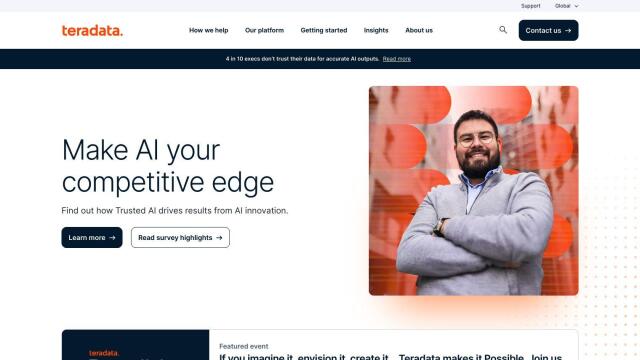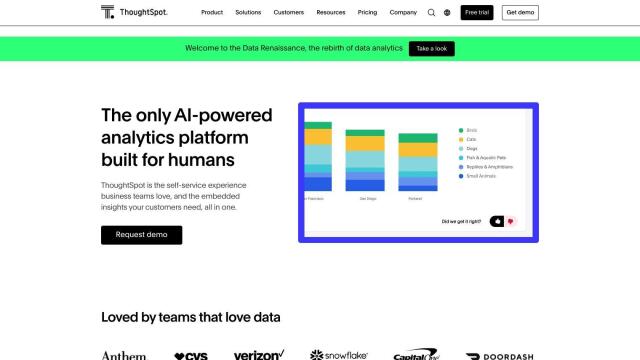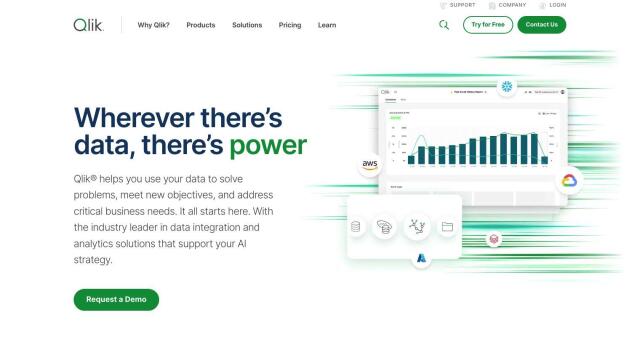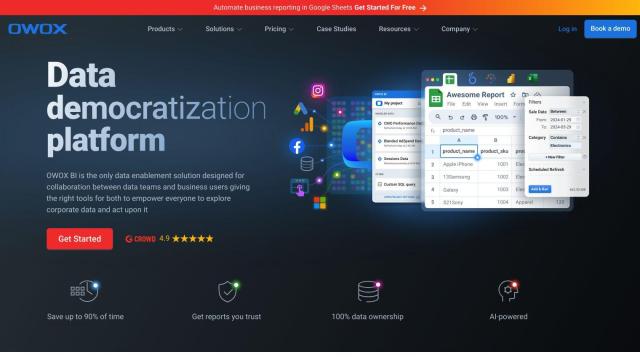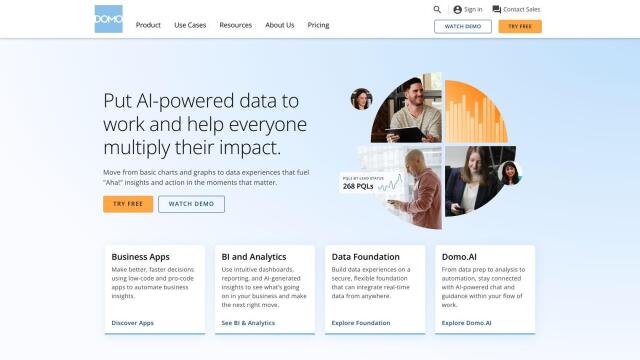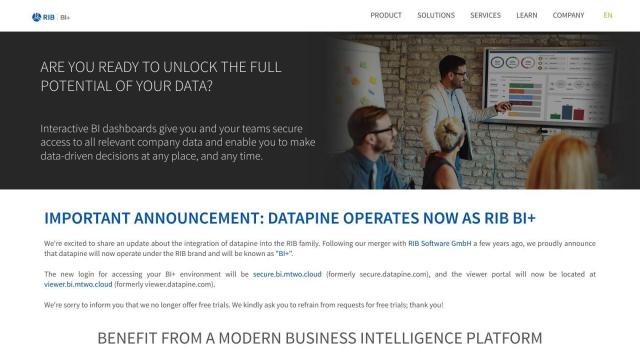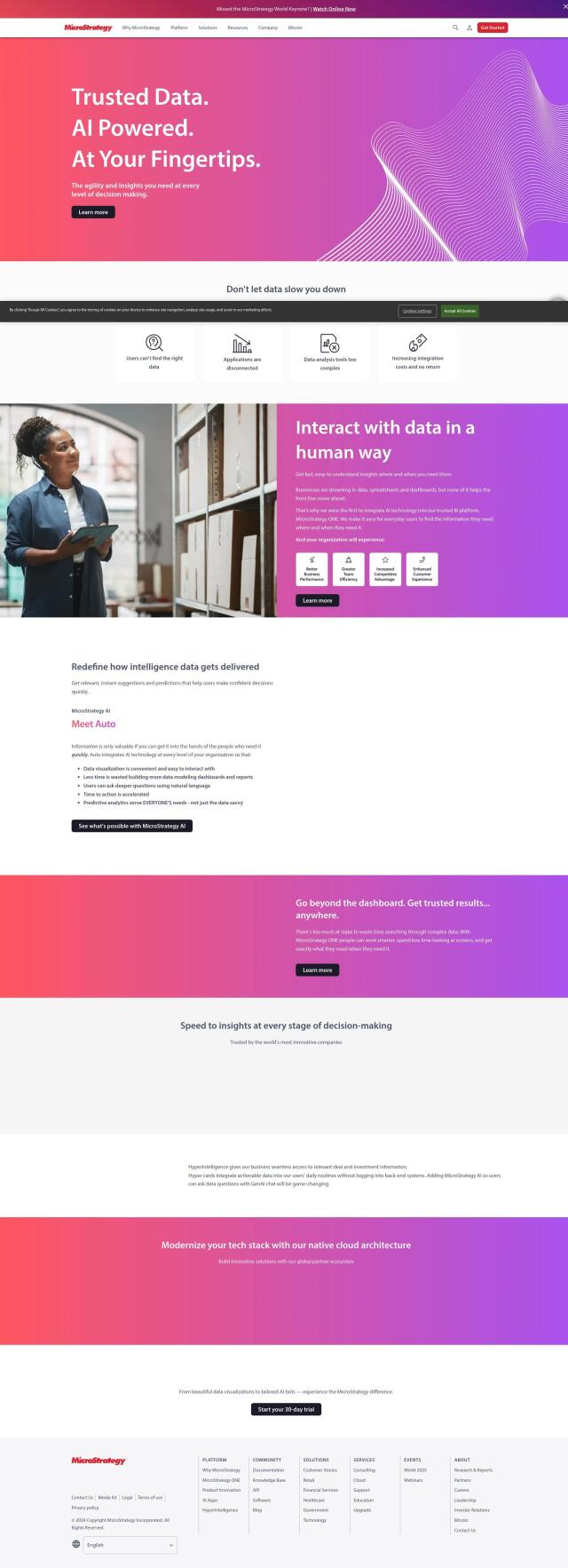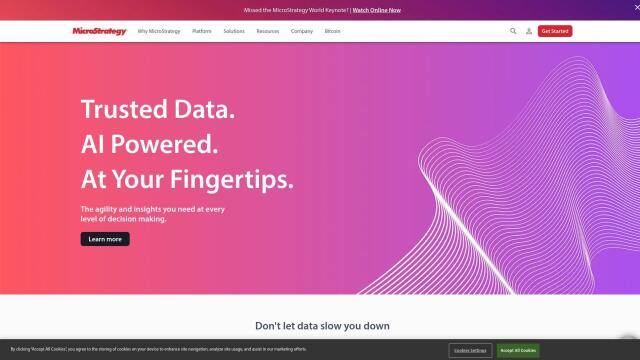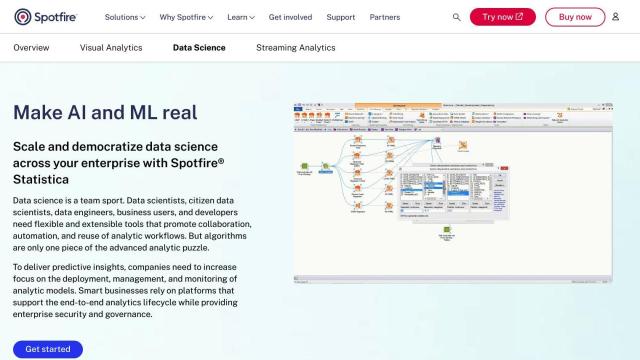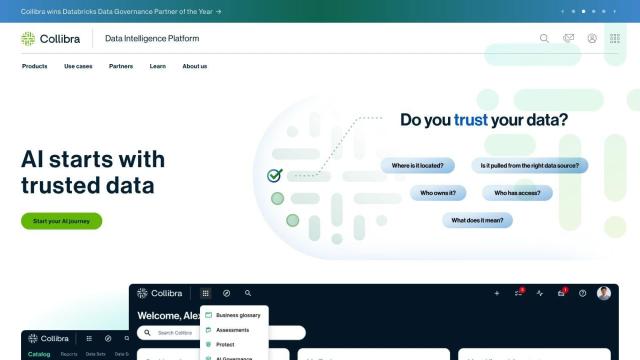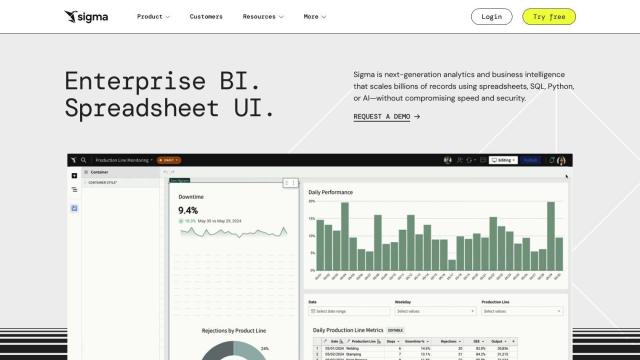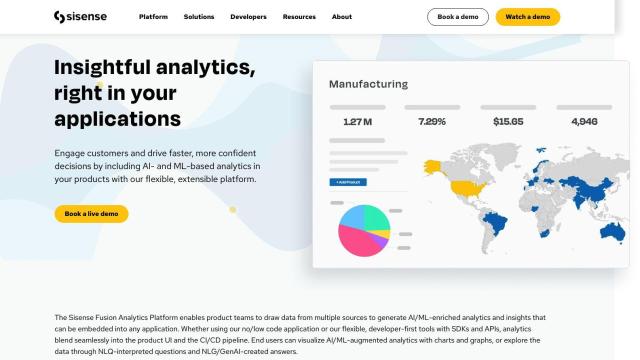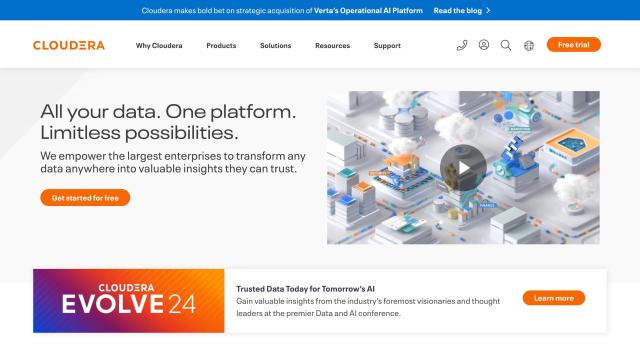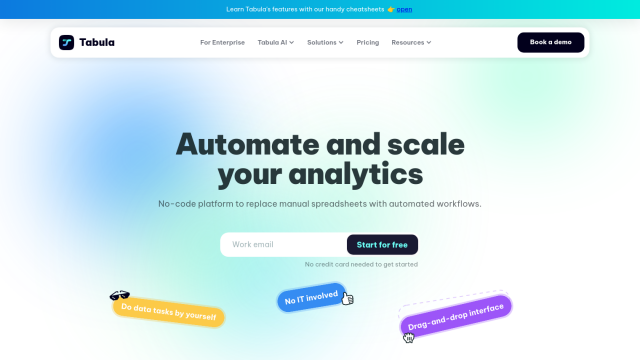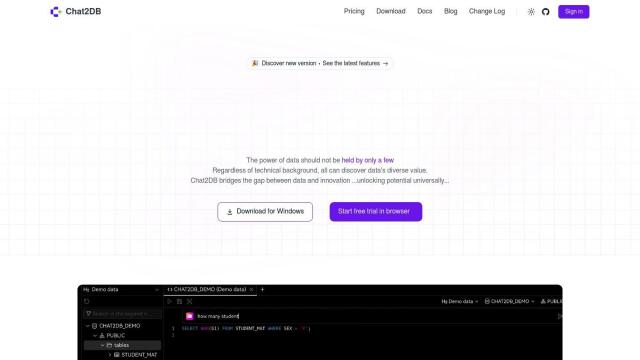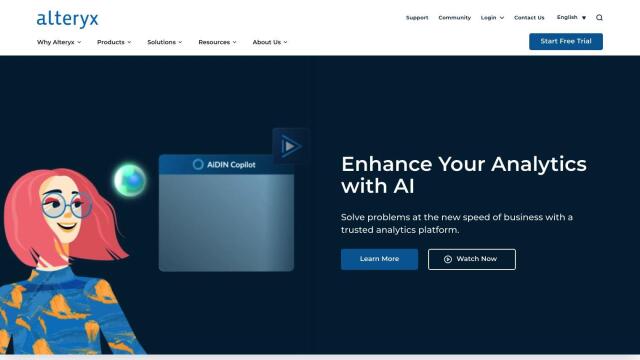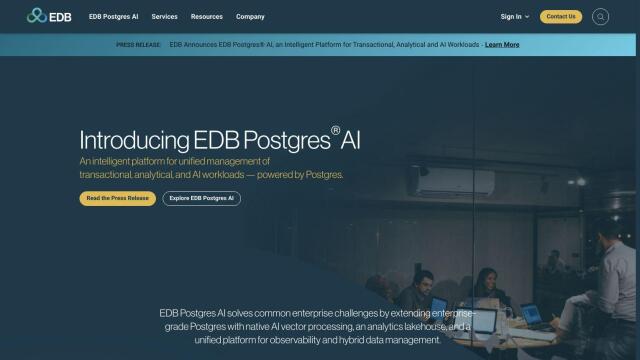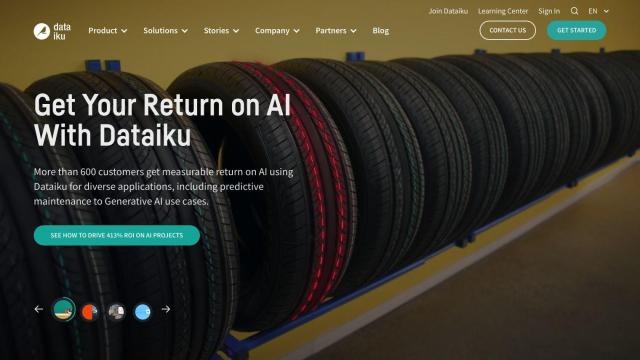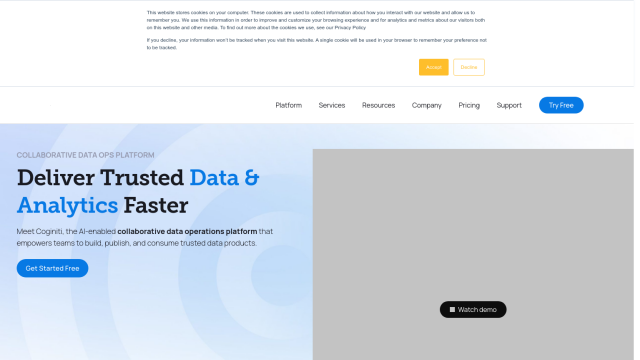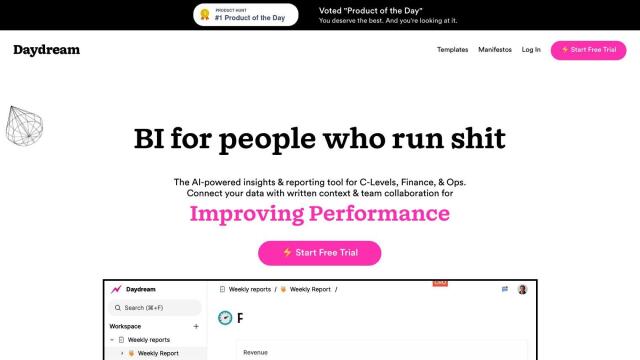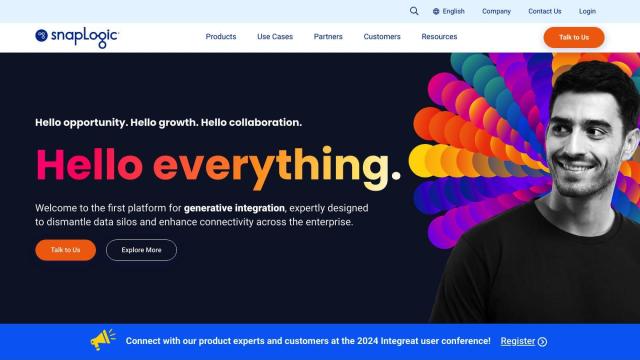Question: I'm looking for a solution that can unify my business intelligence tools and provide a single source of truth for my data.

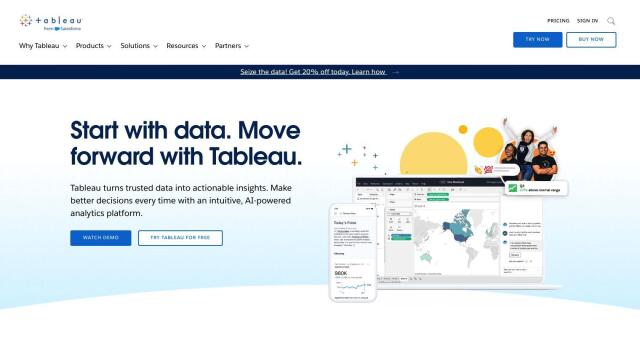
Tableau
If you're looking for a way to consolidate your business intelligence tools and offer a single source of truth for your data, Tableau is a good option. The platform can connect to a variety of databases and offers cloud, on-premises and Salesforce CRM deployment options. It also offers AI/ML capabilities, governance, data management, visual storytelling and collaboration tools. Tableau is used by companies like Whole Foods Market and Dubai Airports, so it's a mature option for data democratization and insights.

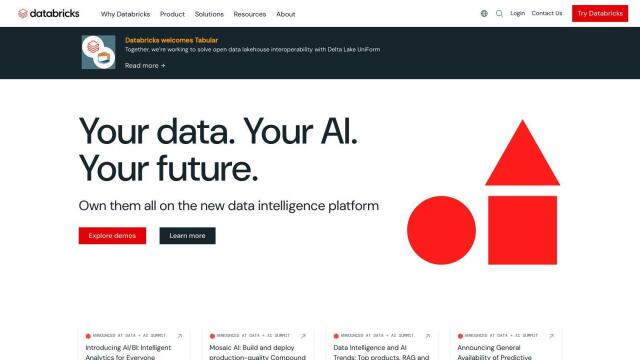
Databricks
Another contender is Databricks, a data intelligence platform that uses generative AI to marry data, analytics and governance. It supports a variety of tools and integrations, including ETL, data ingestion, business intelligence, AI and governance. Its lakehouse architecture means Databricks offers open, scalable and unified data management, and it's a good option for companies that want to build, deploy and run AI applications directly on their own data while keeping control and privacy.

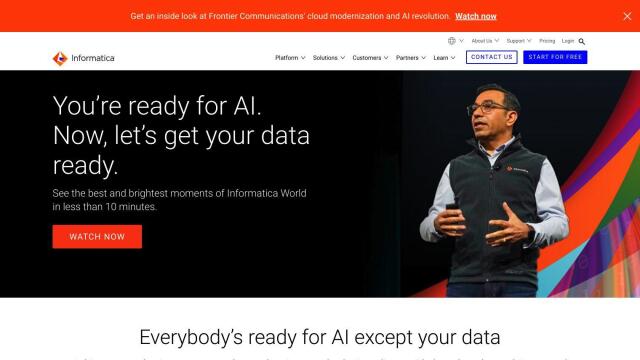
Informatica
If you're looking for a cloud-based, AI-infused data management system, Informatica is an option. It can connect to, manage and unify data across multi-cloud and hybrid environments, with features like cloud connectivity, modern data architecture and platform trust for secure data processing. Informatica's features include data catalog, data integration, API and app integration, data quality and observability, and governance, so it's a good option for companies trying to modernize their data management.

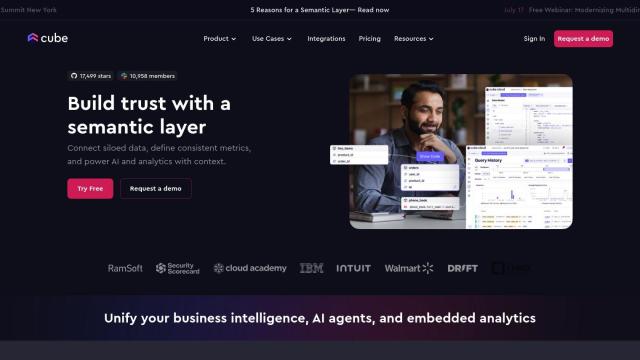
Cube
Last, Cube offers a universal semantic layer that spans business intelligence, AI agents and embedded analytics. It offers a common set of metrics and a single source of truth for data, and it can connect to a broad range of data sources and BI tools. It can connect to data warehouses and query engines, so it's a good option for companies that want to simplify data operations and offer a unified analytics experience.

